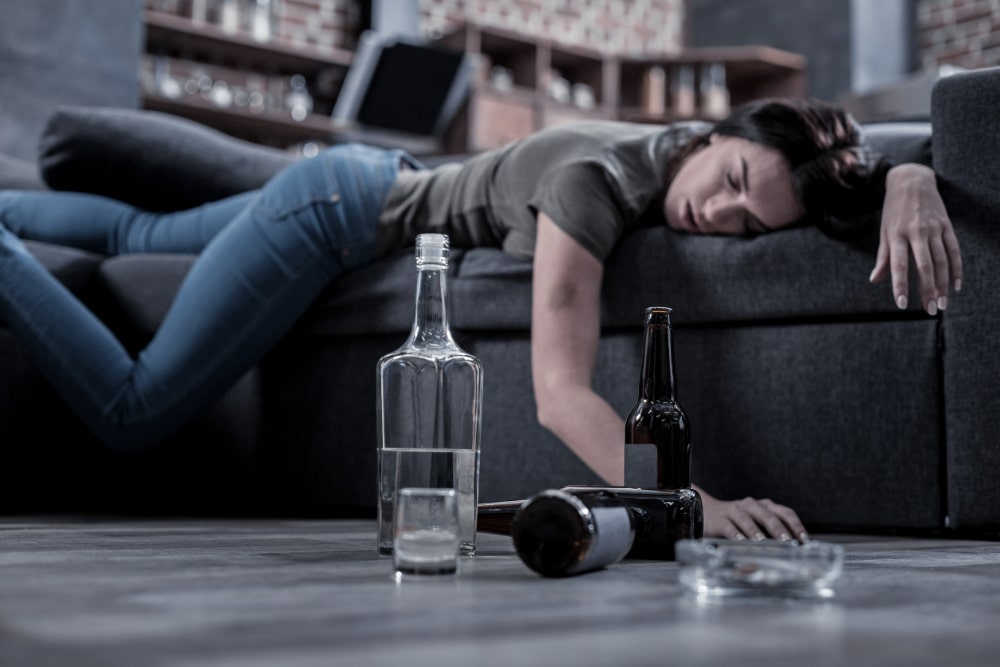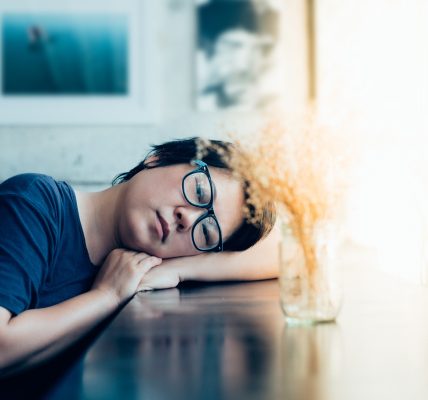Sleep and Substance Use Disorder

People with substance use disorders (SUDs) often have trouble sleeping. One review of the literature on sleep and opioid use disorder (OUD) found:
Sleep disturbance is common and often severe in persons with OUD, especially during opioid withdrawal, but also in persons on opioid maintenance therapies.
Some of the sleep problems experienced by SUD patients include:
- Reduced total sleep time
- Disrupted sleep continuity
- Poor sleep quality
- Chronic stress
- More intense cravings
In a new study published in the March 2025 issue of the International Journal of Psychophysiology, a large team of researchers from California and Pennsylvania used wearable technology to monitor the sleep quality of 55 young adults (30 female, 25 male). They compared the results with self-reported substance use by participants, including caffeine, nicotine, alcohol, cannabis, and other drugs. The results:
The analysis showed that substance use was associated with delays in sleep start and end time, reduced sleep duration and efficiency, and increased wake after sleep onset. Increases in sleep heart rate were associated with prior-day alcohol use.
Researchers state that “any substance use was associated with negative outcomes in sleep behaviors, sleep structure, and sleep HR [heart rate].” Not surprisingly, nicotine use and caffeine use were associated with “delayed sleep onset and sleep period start time.”
The researchers also found some unexpected results: “Surprisingly, the number of alcoholic drinks consumed or consumption of alcohol at night was not associated with poor sleep outcomes.” Alcohol consumption in the afternoon, however, does correlate with poor sleep outcomes. Researchers note, however, that none of the participants self-reported excessive alcohol use during the 28 days of observation.
Researchers say studies show a mixed effect of cannabis on sleep. Their study found “increased wake after sleep onset (WASO) was predicted by cannabis consumption,” but otherwise no sleep disruption. The number of other drug use incidents self-reported by participants was so low that no analysis is made beyond the observation that, “these findings depict a general negative effect of drugs on sleep.”
One researcher who has spent a lot of time looking at sleep cycles and opioid use disorder (OUD) is Dr. Ryan W. Logan at the Psychiatry and Behavioral Sciences Department at UMass Chan Medical School. In an article for The Conversation, Dr. Logan eloquently explained the connection between OUD and sleep:
Sleep and addictive drugs have an entangled relationship. Most addictive drugs can alter sleep-wake cycles, and sleep disorders in people using drugs are linked to addiction severity and relapse.
Dr. Logan traces the disruptions in circadian rhythms and sleep cycles to corticotropin, a hormone that regulates stress. Elevated levels of the hormone can impair cognitive functions, reduce attention span, and increase negative emotions. Dr. Logan cites studies that poor sleep leads to a 250% increase in the likelihood of relapse for those being treated for OUD.
Dr. Logan then takes a fascinating ride through the brain of a recovering addict, using donated tissue and mice. “[M]y lab is able to profile all the RNA molecules in a brain region and understand how their rhythmicity — the peaks and troughs of their activity across the day — changes due to opioids,” boasts Dr. Logan. Some of his findings:
- OUD patients have completely different gene expression patterns in the nucleus accumbens and the dorsolateral prefrontal cortex compared with those without addiction
- Some genes adopted a different rhythm of activity
- Some genes had lost their rhythmicity completely
The genes that lost rhythmicity included those involved in regulation of the molecular clock and those linked to sleep duration. Dr. Logan hopes that targeting genes that have lost their rhythmicity will lead to interventions that help those recovering from OUD to sleep better and live longer.
Written by Steve O’Keefe. First published February 20, 2025.
Sources:
“Sleep disturbance as a therapeutic target to improve opioid use disorder treatment,” Experimental and Clinical Psychopharmacology, 2021.
“Exploring the relationship between sleep patterns, alcohol and other substances consumption in young adults: Insights from wearables and Mobile surveys in the National Consortium on alcohol and NeuroDevelopment in adolescence (NCANDA) cohort,” International Journal of Psychophysiology, March 2025.
“Poor sleep and addiction go hand in hand — understanding how could lead to new treatments for opioid use disorder,” The Conversation, February 10, 2025.
Image Copyright: zinkevych.




